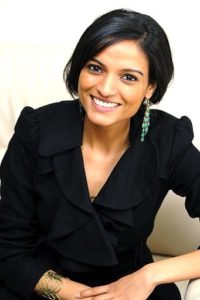Dr Anupriya Agarwal
 My passion for medicine was lit while I was growing up in Kenya. I used to volunteer for medical community programs, and used to help interpret the local language for the visiting international doctors so they could communicate with the local villagers. I saw my first surgery at the age of 9 years, and this helped to drive my passion to help others through medicine.
My passion for medicine was lit while I was growing up in Kenya. I used to volunteer for medical community programs, and used to help interpret the local language for the visiting international doctors so they could communicate with the local villagers. I saw my first surgery at the age of 9 years, and this helped to drive my passion to help others through medicine.
I completed my undergraduate training at the University of Adelaide, and pursued basic physician training and advanced training within the field of Medical Oncology with the Royal Australian College of Physicians.
The Doctor-Patient relationship is a very privileged one, where doctors get to know intimate details of a person over a short time period. In medical oncology, this is heightened by the aim to get the best quality of life and achievement of goals in your patients in a limited time frame, which can only happen if you have a good relationship with them.
I began my medical training at a time when there were an increasing number of female physicians breaking the glass ceiling and achieving new heights within the field of medicine. Dr Fiona Wood had just won the Australian of the Year award for her work with burn victims, and inspired a generation of female doctors to aspire to the same level of greatness.
As I have progressed in my area, I have been noticing an ever increasing acceptance of the role women play in the workforce. We are now seeing more females in universities, hospitals and in specialty training programs. And as more females are taking the roles of leaders and heads of departments, a greater equality is seen in the workplace.
Further change is yet warranted in some specialty fields, where the option of having a family is not a hindrance.
I feel lucky to be part of a subspecialty where I have never had to feel less capable due to my gender. My maternity leave was celebrated and so was my return on a part-time basis.
I have been privileged to be surrounded by a supportive department as well as some wonderful mentors.
Having said that, you will occasionally find the grumpy, or even downright rude senior every now and then, however those are challenges all young doctors face, male and female, and dealing with these situations can be a stepping stone to help you with the much bigger challenges ahead in your career.
I feel that there has been somewhat of a paradigm shift in the attitudes towards the ability for women in the workplace to succeed. However this has been accompanied by a greater requirement for women to achieve a successful career and still maintain the status quo when it comes to having a family etc. To those young women, I will echo the famous line spoken by our previous Governor General, Dame Quentin Bryce, who said “you can have it all, but not all at the same time.”
It can be highly stressful for young women in the medical profession to maintain a balanced life with the demands of on-call, shift work and the need to pursue research and add publications to your CV to stand out from the crowd during job applications. When you add the demands of a family on top of this, the outlook can certainly seem daunting. However, I feel that women can achieve whatever they set their minds to, but to accept that it may take longer than they had originally envisaged. This need not be a hindrance though, as the journey is often sweeter that the destination.
I will always treasure the time I took off for my maternity leave, and if anything, I think the experience has made me a better doctor and a better researcher. After all, nothing can show you the depths of patience required for research as accurately as the patience needed to settle a crying baby.
